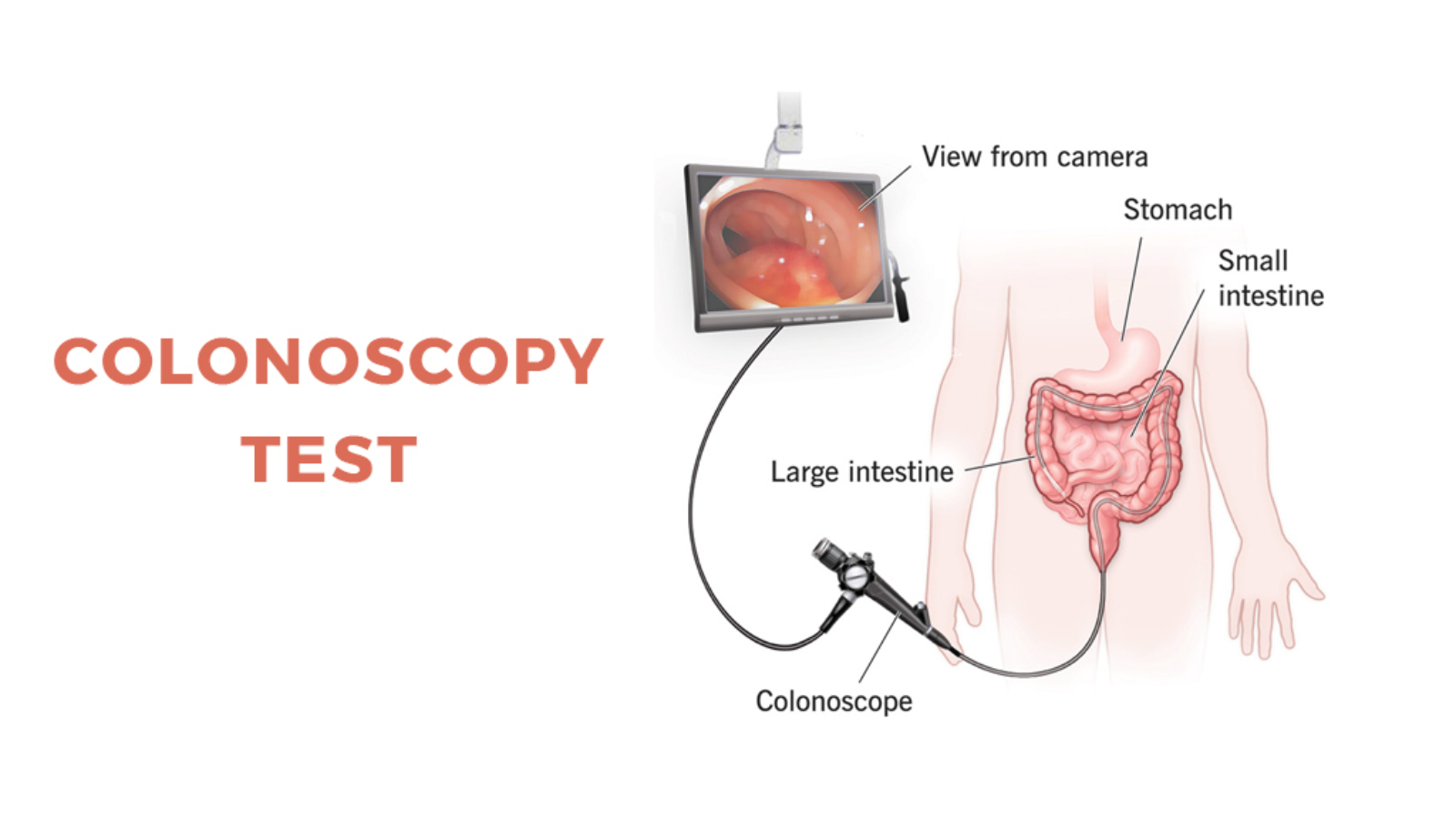A colonoscopy is a diagnostic test that helps to identify possible problems, like polyps or colon cancer. Polyps are tiny growths. However, they’re not cancerous; they could develop into cancer. You may also undergo this test to determine the problems with your bowels, including bleeding, shift in bowel movements or any other issues.
Every year thousands of patients undergo a colonoscopy test as part of their regular medical examination. However, there are many who don’t know the importance of having a colonoscopy, and some don’t know what they can expect from this procedure. For your convenience, we covered everything related to a colonoscopy test like what is the procedure all about, prep methods and the expectations for this test in this blog piece.
Colonoscopy Test Overview
A medical procedure that determines the health of the rectum and colon using an instrument called colonoscope. A colonoscopy is a visual examination of the internal large intestine which comprises your colon, rectum and the anus. It is like an endoscopy procedure as it involves a colonoscope, which is a flexible tube illuminated with a camera on one end to view the inside of the body.
In a colonoscopy procedure, the colonoscope travels through your anus and rectum before entering your colon. Being there, it displays images showing the inside of your intestine on the screen.
The test helps for detecting the presence of tumors, polyps or inflammation or bleeding in the colon and the rectum. Moreover, it also helps with the identification of cancerous growth in the colon. The colonoscopy assists in identifying the signs such as unusual stomach pain, unprovoked diarrhea and bloody stool.
Colonoscopy Types
Listed below are the two main types of colonoscopy and to find the suitable one, people discuss their conditions with an expert:
Screening Colonoscopy
A screening colonoscopy is a routine test that determines the colon health. A person may need an examination for colon cancer screening if they show no signs of colorectal cancer, or have no previous experience of polyps or colon cancer, or even do not have any family history for colon cancer.
Diagnostic Colonoscopy
The doctors suggest diagnostic colonoscopy when a person exhibits signs of illness or have family background for colon cancer. This kind of colonoscopy may work if the patient suffers from anemia caused by iron deficiency, constant abdominal pain, bloody stool or persistent change in stool habits.
Why Should You Get a Colonoscopy?
Your doctor may suggest the colonoscopy procedure for a variety of reasons. A popular reason for having the procedure is to detect colon cancer. People who are above 50 years old are more susceptible to developing colon cancer and need screening for the same.
You may also need a colonoscopy if you are experiencing nausea, vomiting or blood in stool. The procedure involves an examination to find the reason for these symptoms.
Another reason for this procedure is if you have a family history of colon cancer, or the personal experience with polyps. Ignoring these signs can put you at a higher chance of getting cancer. A colonoscopy can be an examination for screening and a medical procedure that removes any polyps.
The Colonoscopy Test Procedure
A device called a colonoscope is essential to conduct tests. The instrument has a flexible, long thin measuring around 5 feet long and 1-inch in width, including a fiber optic camera to the other end. The experts insert a colonoscope through the rectum, and then upwards to the colon’s beginning and allow the doctor to view and inspect the colon inside.
The doctors usually recommend a colonoscopy when a patient shows indication of any digestive illness or showing signs of serious conditions that affect the colon. Some signs and symptoms are:
- Bleeding in rectum/motions/stools that could be black, bright red or extremely dark.
- Pain in the lower abdomen
- Unknown, non-dietary weight loss
- Changes in the bowel habits
- Recurrent anemia (low hemoglobin)
What Can I Expect During The Colonoscopy Test?
A colonoscopy usually takes 30 to 60 minutes depending on if the doctor needs to remove polyps or perform biopsies. Patients can expect to stay waiting for up to three hours to ensure adequate preparation and healing.
During the procedure, a doctor inserts the colonoscope into the anus and into the colon and rectum. Air gets pumped through the colon to increase its circumference to allow an easier view of the interior. Doctors may give general anesthesia or conscious sedation during a colonoscopy. If the doctors spot polyps, they can take them out at this point. Moreover, if they discover any abnormal tissue, the doctors can perform a biopsy.
Although you will not feel any pain throughout the procedure, it is possible that you could experience bloating and cramping in your abdomen for an hour following colonoscopy.
A professional doctor may discuss alternatives for anesthesia ahead of the procedure. The doctor may also review some important signs of your body, ensuring your comfort throughout the entire process.
How Should You Prepare for a Colonoscopy?
Your doctor may advise you to cleanse your colon one day prior to your colonoscopy. The residue could block the vision through the colonoscope. Listed below are a few things that must do to prep for your colonoscopy test:
Eat a special diet: The eating habits restrict to consuming specific amounts of fluids, a day before the exam. You must avoid taking dairy products or carbonated drinks before the test. You may also be told to stay clear of liquids that have red dye because it could be mistaken as blood in the course of treatment.
Laxatives: The doctor may suggest an oral laxative prior to and in the morning before the procedure.
Get an enema: A enema is a reliable method of emptying the lower portion in the colon.
Make any adjustments to medications: Provide your doctor with the complete details about the medications you are currently taking. They might need some altercation, so you must notify your doctor at least one week before your appointment.
Is colonoscopy painful?
If you are sedated, you won’t be experiencing pain inside the colon. This is true even if an expert removes tissue, or uses laser therapy inside your colon. However, you may feel some gas-related pressure or pain with the insertion of a colonoscopy through your colon. This is because the colonoscope releases CO2 gas through your colon, which inflates it to improve the visual. It’s usually not too noticeable once the inflation process is complete. You’ll lie in a fetal position in a hospital bed and might even be sleeping.
Results That You Can Expect From a Colonoscopy
A negative result occurs when your doctor doesn’t detect any anomalies during the colonoscopy. If that happens the doctor will suggest that you have your next colonoscopy after ten years. If, however, you’re at risk of developing cancer, you’ll be required to repeat the procedure within five years. If your doctor is unable to take an accurate image of the colon due to any obstruction, then you’ll be required to repeat the procedure within one year.
Positive results are when a doctor discovers polyps or abnormalities in your colon. If you’ve got polyps, the doctors will remove them and send them to the lab for examination. Most polyps are not cancerous, however, they can indicate development of cancerous cells. It is possible that you will require more thorough screening, based on the dimensions and amount of polyps.
Colonoscopy Risks and Side Effects
Although colonoscopy tests generally associate with only a small risk, there are occasions when complications could occur, for example:
- An adverse reaction to sedatives administered during the exam.
- Bleeding in the area the specimen of tissue was taken or where a polyp, or another unnatural tissue was taken.
- A tear, or perforation within the colon’s wall or the rectum.
Wrapping Up!
We tried our best to cover every relatable aspect about colonoscopy tests that a person must know if they face the symptoms mentioned above. At Samsara Cancer Care, we recognize the important role that colonoscopy plays when diagnosing and addressing these hidden problems. Our team of experts has unmatched experience in dealing with complexities related to colon health. With the most innovative technology, including high-resolution colonoscopes and advanced imaging techniques, our experts reveal the hidden. With a constant commitment to excellence and patient health, we illuminate the way towards a healthier digestive future.

